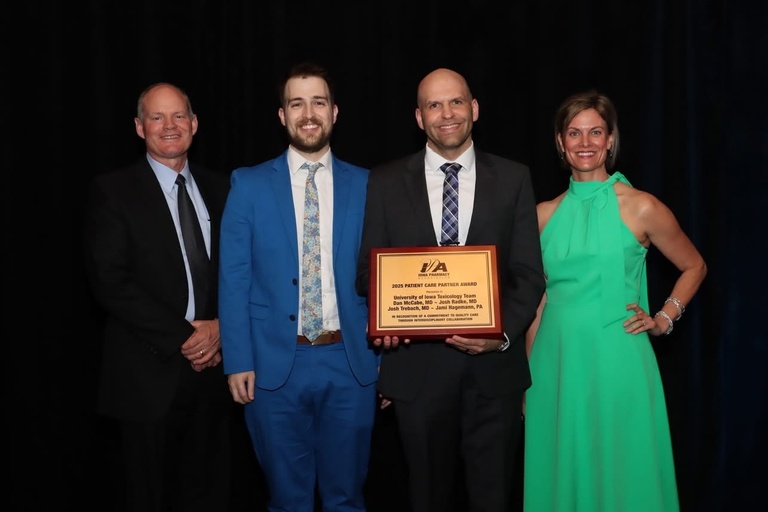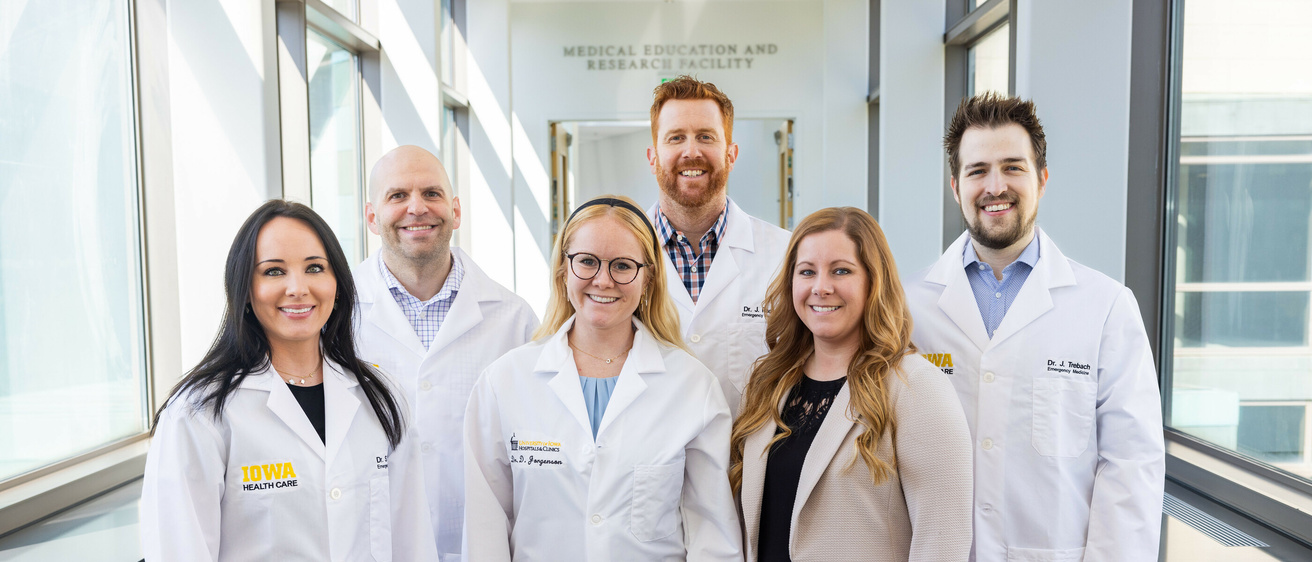University of Iowa Health Care's Medical Toxicology Clinic opened last summer to help meet the ongoing medical needs of patients exposed to toxic substances.
As the only clinic of its kind in Iowa and many of the surrounding states, the clinic uses a more targeted approach—versus ordering a myriad of tests—to diagnose patients, which can be more cost-effective and efficient.
According to Daniel McCabe, MD, director of the Division of Medical Toxicology, after a year of being open, the clinic continues to see patients from Iowa and surrounding states, all with varying degrees of exposure.
“The majority of our available appointment slots are consistently scheduled. We have steady and ongoing demand for our services,” he says. “A significant number of our patients are referred after seeing multiple subspecialists for evaluation of an exposure or following an unexpected lab result.”
Relieving toxic anxiety
McCabe says a lot of the medical toxicology clinic’s patients arrive with high levels of uncertainty about what a toxic exposure could mean for their long-term health. The clinic aims to provide compassionate care for those looking for answers from a specialist.
“Most patients come to us fearful and anxious, often suspecting a poisoning but lacking access to a specialist. In many cases, they’ve relied on internet searches or anecdotal advice, which can only amplify their fears,” McCabe says. “When they come to us, they’re seeking guidance from someone with expertise in a broad range of exposures—someone who can interpret results, determine the appropriate work-up, and advise on treatment, if needed.”
While most physicians may only see one or two cases of chronic poisoning in their career, specialists at the medical toxicology clinic are seeing several patients a week. McCabe says the majority of referrals are related to occupation and environmental exposures, particularly involving substances like pesticides and solvents. Heavy metal concerns–including lead poisoning at work or at home–are also common concerns among the clinic’s patients.

Recognized for patient care
In 2025, UI Health Care’s Division of Medical Toxicology was recognized by the Iowa Pharmacy Association with the 2025 Patient Care Partner Award. Highlights from their nomination letter include collaboration with emergency medicine pharmacists to enhance the timely delivery of antidotes to patients experiencing the effects of poisoning.
McCabe is grateful that the toxicology team is being acknowledged not only for their expertise but their dedication to collaboration with other health care organizations and referring providers.
“Building these relationships fosters more efficient care in complex situations. Collaboration, through innovative educational initiatives and interprofessional discussions, is essential to improving care for poisoned patients,” he says.
The team has also created new educational tools and simulation-based training programs to prepare other health care providers to manage emergencies involving toxins or poisons.
UI Health Care medical toxicologists serve patients in hospital and clinical settings. Patients interested in being seen specifically at UI Health Care’s Medical Toxicology Clinic should consult with their primary care provider.
